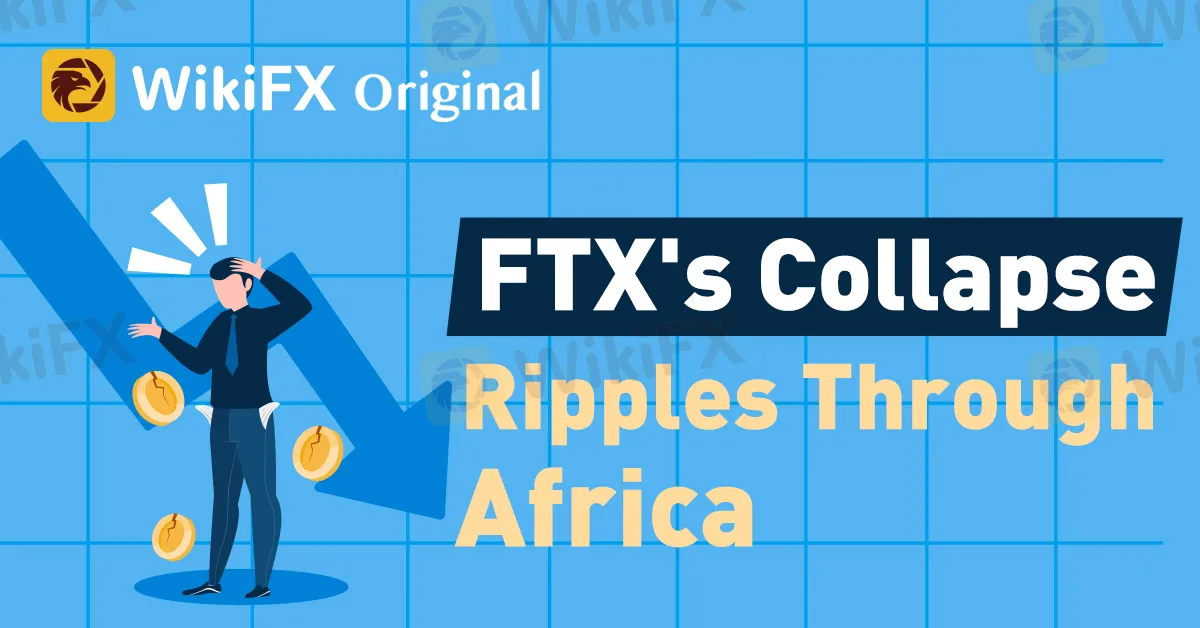简体中文
繁體中文
English
Pусский
日本語
ภาษาไทย
Tiếng Việt
Bahasa Indonesia
Español
हिन्दी
Filippiiniläinen
Français
Deutsch
Português
Türkçe
한국어
العربية
FTX's Collapse Ripples Through Africa
Abstract:FTX, a once-loved cryptocurrency exchange, has collapsed, and this has caused a ripple effect on several fintech businesses in Africa.

A Nigerian web3 startup named Nestcoin, which held its assets in terms of cash and stablecoins in FTX, announced that it was firing some of its staff in order to keep operational expenses under control.
Nestcoin was launched in November 2021, and it has raised capital from a range of investors within this 1-year establishment, including Alameda Research, a quantitative trading firm and corporate sibling of FTX.
Nestcoin's founder, Yele Bademosi, explained through a tweet that Alameda's equity is less than 1% and that they had been utilizing FTX as a custodian to store a significant proportion of stablecoin investment for their day-to-day operating budget. Nestcoin clarified that it did not participate in any trading with FTX but solely had its assets custodied on the FTX exchange.

It was reported that FTX processed billions of dollars each month in Africa before its collapse. Before this unfortunate event, FTX initially planned to open an office in Nigeria, Africa's most populous nation and largest economy.
On the other hand, another Kenya-based payment automation and settlement platform, AZA Finance, recently denounced FTX's listing of BTC Africa and 22 of its subsidiaries in its Chapter 11 bankruptcy filing. The CEO and founder of AZA Finance, Elizabeth Rossiello, clarified its partnership with FTX Africa to expand web3 locally by establishing regulated, safe and low-cost payment rails.

However, FTX and sister company Alameda Research has provided monetary support to only a small number of African firms, like Nestcoin. In November of last year, a Series C extension round headed by FTX secured $150 million for Chipper Cash, an African unicorn in the fintech space and cross-border payments company. Alameda Research has also invested in the following companies: Jambo, a web3 firm located in the Congo; VALR, a South African-based digital asset trading platform; and MARA, an African-focused cryptocurrency exchange startup with bases in Nigeria and Kenya.
Alameda Research, Coinbase Ventures, and Distributed Global contributed $23 million to MARA's fundraising effort in May 2022 through equity and token sales. Additionally, Alameda Research and eminent venture capitalists participated in VALR's US$50 million Series B funding round in March of this year. Jambo also raised $7.5 million from Alameda Research and Coinbase in February 2022 to create the “web3 onboarding portal of Africa.”
One of the most recent developments in Africa related to the demise of FTX is the loss of the South African Financial Service Provider (FSP) licence by the cryptocurrency exchange with its headquarters in the Bahamas. This is due to the South African cryptocurrency exchange Ovex removing the firm representing digital assets as its legal representative. The market maker received R60 million (roughly $3.5 million) from FTX in April last year.
Download the free WikiFX app and check out the 24 hours a day news section to stay up to date on the most important events in the world of business.


At WikiFX, we keep lengthy and financial jargon away to make things easier for everyone to understand in just a few seconds. Plan your trades ahead – it is always be safe than sorry.

Disclaimer:
The views in this article only represent the author's personal views, and do not constitute investment advice on this platform. This platform does not guarantee the accuracy, completeness and timeliness of the information in the article, and will not be liable for any loss caused by the use of or reliance on the information in the article.
Read more

Malaysian Influencer Detained in Taiwan Over Alleged Role in Fraud Scheme
Malaysian influencer Hu Chang Mun, widely known as Ady Hu, has been detained in Taiwan for his alleged involvement in a fraudulent operation. The 31-year-old, who was reported missing earlier in December, was located by Taiwanese authorities after suspicions arose regarding his activities.

Investment Scams in Malaysia: Telegram Tops Scammers’ List
In the first 11 months of 2024, Malaysia recorded 5,685 investment scams, with Telegram emerging as the most commonly used platform for fraudulent activities.

Pros and Cons of Choosing Unregulated Forex Brokers
Discover the pros and cons of unregulated forex brokers, explore risks, benefits, and key features, and learn how to evaluate their credibility with the WikiFX app.

Gigamax Scam: Tracking Key Suspects in RM7 Million Crypto Fraud
Malaysian authorities are actively pursuing seven individuals linked to the Gigamax investment scam, which has defrauded investors of over RM7 million. The suspects include an Indonesian national, identified as Awaludin, who is believed to be the mastermind behind the scheme, and six Malaysians who served as promoters and speakers for the fraudulent operation.
WikiFX Broker
Latest News
Geopolitical Events: What They Are & Their Impact?
Top 10 Trading Indicators Every Forex Trader Should Know
Why Do You Feel Scared During Trade Execution?
Currency Calculator


